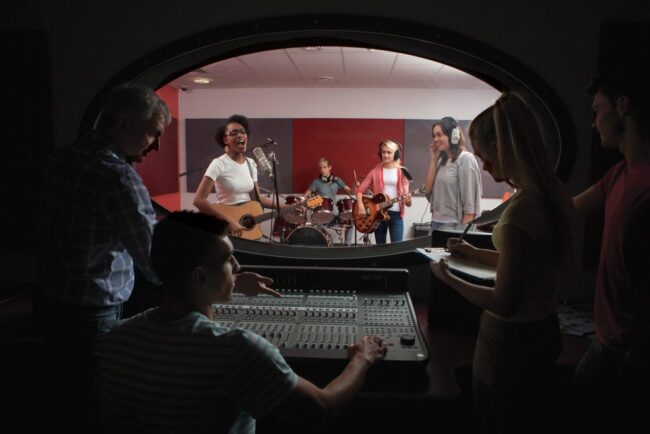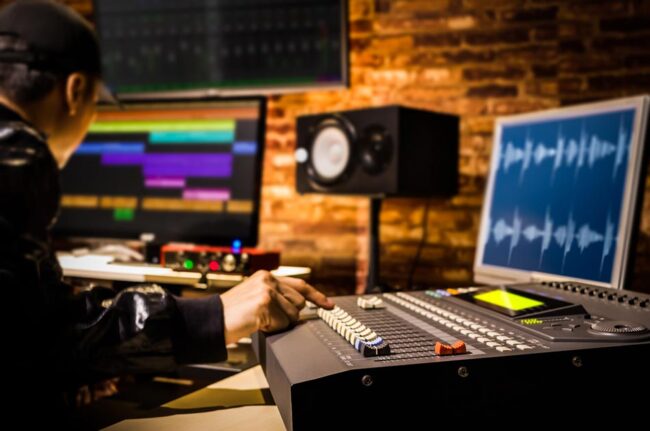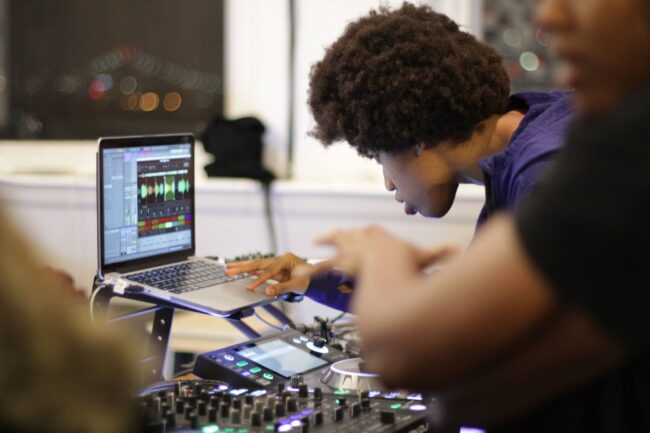It’s time to get close to the mic. Recorded music revenues reached more than 23 billion dollars in 2024. Independent artists made a lot of money, growing at 27 percent over the year. You can make and produce an album yourself. But before you take your first step toward pop fame, you should answer a few questions.
What does a music producer do? What do you need to produce music? What is the job of a music producer in terms of creating new songs? Answer these questions and you can make your time at the recording studio a lot easier. Read more information about what a music producer does in this quick guide.
Scheduling

All music producers have the job of coordinating production. They schedule when artists will come into the studio and perform. They can hire new artists if they have skills that the artists in the studio do not have.
They must keep the artists to their schedule. It is okay to rewrite a song or fix a track. But the producer must hold the artists to a deadline. The producer develops the schedule with the help of a record label. They should be on good terms with them. They can ask for extensions, but they should otherwise follow the instructions of the label.
Scheduling is important for all productions, including independent and personal projects. A producer can steer an artist away from extensive remixing and overdubbing. Anyone involved in music production should be familiar with their local area. A music producer in Minneapolis should know talented musicians in the city.
Budgeting

Budgeting is equally important as scheduling. The producer helps the artists figure out how much their project will cost. They should budget for every step of production, including renting a recording studio and post-production.
They anticipate how costs might expand. They may need to hire a new artist, or they may need to record a track all over again. They figure out what they can do to keep prices down, including using alternative takes.
A producer can be a consultant on other expenses. They can talk to graphic designers and videographers for a music video. Budgeting used to be the main job of a producer. It still is important, but producers take on other responsibilities. Budgeting may be delegated to an accountant or an assistant producer.
Coaching Performances

Supervising performances is the main job of producers today. They stay in the studio and spend time working alongside artists and sound engineers. They listen to the performances as they happen and give advice.
Most producers let artists take the lead. But they do step forward and tell them what is and is not working. Many producers have little or no experience playing music themselves. They trust their instincts to decide on what performance sounds good.
They may make the final call, especially on a big project. Producers should familiarize themselves with commercial music and popular trends. They can adjust songs to fit these trends, though this may irritate the artists. As performances are going on, the producer should create a good environment to work. They should remove distractions and give resources like food and water so the musicians can perform.
Momentum is the key to many great albums. Stopping a band in their tracks can throw off their ability to make music. A good producer should choose their times to step in and give opportunities for artists to correct themselves.
Polishing Raw Music

Once the recordings are done, a producer can take the lead in editing the music. Producers begin with editing. They change performances and arrangements as they see fit. They can then create a cohesive product through mixing. They clean up the recordings, removing background noise and pauses. They correct time, pitch, and volume.
During this stage, a producer may decide to record something again. They can record a whole song, or they focus on the performance of an instrumentalist. After mixing, a producer can turn to mastering. They generate a master copy of the song so they can duplicate it for CDs or vinyl records. This may require some last-minute fine-tuning.
A producer works alongside recording engineers, arrangers, and musicians. They solicit input, but they also make and carry out their own decisions. Editing music is part intellectual and part instinctual. A producer should have a good taste for music and knowledge of how to edit a song. But they should trust their gut when they hear something that seems good.
Creating New Music

Some producers are composers and musicians themselves. They create and perform all-original music, then they head into the studio and edit it. This is increasingly becoming the case in modern pop music. Artists like Kanye West and Beck work on both ends of an album.
A producer does not have to know how to play an instrument. They can use software instruments to play their arrangements. They can also download or remix synths and audio samples from the Internet. This is the case with many electronic, hip-hop, and indie productions today.
Some producers start on the back end and then make their way to songwriting. Others go in the opposite direction. Anyone should study the skills they don’t have before making a transition.
So What Does a Music Producer Do?
Musicians have a lot of questions. What is a music producer? They are someone who schedules and budgets the production of a song or album.
What does a music producer do besides scheduling? They can do a lot.
They can supervise the performances of musicians, and they can create a productive environment for them. Once the recording is done, they can get involved in mixing. Some producers go the extra mile and make their own music. You can become a great producer once you have resources.
